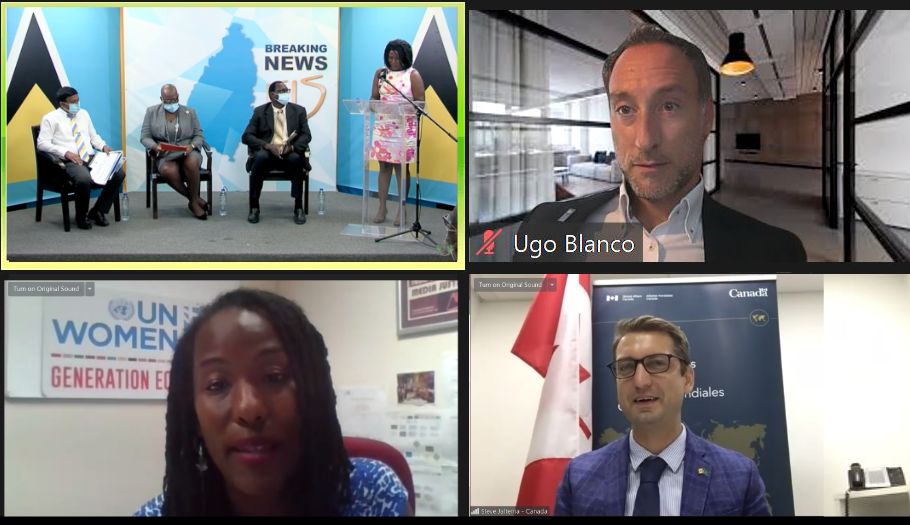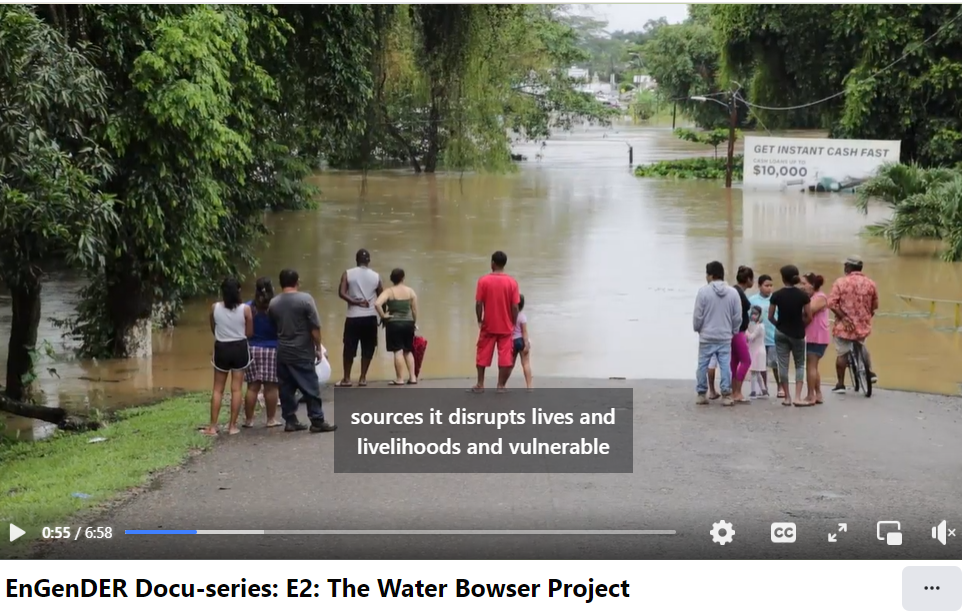Enabling Gender-Responsive Disaster Recovery, Climate and Environmental Resilience in the Caribbean
EnGenDER
Project Background
The Enabling Gender-Responsive Disaster Recovery, Climate and Environmental Resilience in the Caribbean (EnGenDER) Project is implemented by the United Nations Development Programme Barbados and the Eastern Caribbean with support from the Governments of Canada and the United Kingdom. The project aims to improve climate and disaster resilience for key vulnerable populations such as women, youth, the elderly and persons with disabilities in the Caribbean. Implementing Partners include UN Women, World Food Programme and the Caribbean Disaster Emergency Management Agency (CDEMA).
The physical impacts of climate change and natural hazards are being seen to compound pervasive structural inequalities and socioeconomic vulnerabilities since gender equality and human rights are rarely given the consideration required in climate change mitigation and adaptation, and in disaster risk, recovery and response. While this is a general pattern where women and girls face a disparity in terms of (amongst other things) access to economic participation, nuances exist in each country in the needs and vulnerabilities of women, men, girls and boys, which warrant more detailed investigation and articulation.
Women and men typically respond and react differently in the various stages of disasters and recovery; and the groups with the least knowledge and capacity to take short-term measures to limit impacts from climate-related disasters are often the most affected. EnGenDER seeks to further integrate gender equality and human-rights based approaches into disaster risk reduction (DRR), climate change (CC) adaptation and environmental management frameworks and interventions and identify and address some of the gaps to ensure equal access to DRR and climate change and environment solutions for both men, women, boys and girls in nine Caribbean countries (Antigua and Barbuda, Belize, Dominica, Grenada, Guyana, Jamaica, Saint Lucia, St. Vincent and the Grenadines and Suriname).
Appreciating that the 9 participating Caribbean countries are at different stages of removing barriers to gender quality and integrating gender-based analysis into climate change, as well as recovery, this project aims to ensure that climate change and disaster risk reduction actions are better informed by an analysis of gender inequalities, and decisions are taken to ensure that inequalities are alleviated rather than exacerbated and that minimum standards are being met in doing so. These underlying gender inequalities (specific to each country context) are compounded by increasingly intense and frequently experienced climate change and disaster risk within Caribbean societies. It aims to empower governments to take ownership of their disaster risks and exposure with better national arrangements to deal with possible large-scale recovery needs, including improved shock responsiveness in national systems and better social protection finance tools for the most vulnerable. As such, the project’s ultimate outcome is improved climate and disaster resilience for women and girls and key vulnerable populations and future generations in the Caribbean.
Intermediate and immediate outcomes are as follows:
- Enhanced practices of relevant actors for the sustainable implementation of gender-responsive climate change action and disaster recovery
- Improved national capacity for gender-responsive climate change adaptation and mitigation planning and implementation among state and non-state actors in the target countries
- Improved integrated recovery planning and frameworks at the national and regional levels for gender-responsive and resilient disaster recovery by key vulnerable groups
- Improved governance by relevant actors for gender-responsive climate and risk resilience planning and decision-making in 9 Caribbean countries
- Increased application of gender equality and rights-based approaches by national climate change and DRR coordinating bodies
The EnGenDER project will support CC, DRR and environmental management interventions in the 9 Caribbean countries by leveraging sector-level entry points (e.g. NAPs and NAMAs), specifically supporting implementation and/or upscaling of countries’ priority actions. This project will analyse and prioritise the needs of the most vulnerable with respect to climate change adaptation and mitigation in priority sectors, including increasing their resilience in key livelihood sectors. It will also improve institutional capacities for delivering services effectively for the most vulnerable to accelerate post-disaster recovery and mitigate risk. By using a multi-disciplinary and integrated approach, the project also aims to contribute to the achievement of several SDGs (2, 5, 10, 11, 13, 14, 15, 16).
PROJECT LAUNCH: US $15 Million Multi-Country Disaster Recovery and Environmental Resilience Project Launched

 Locations
Locations




















